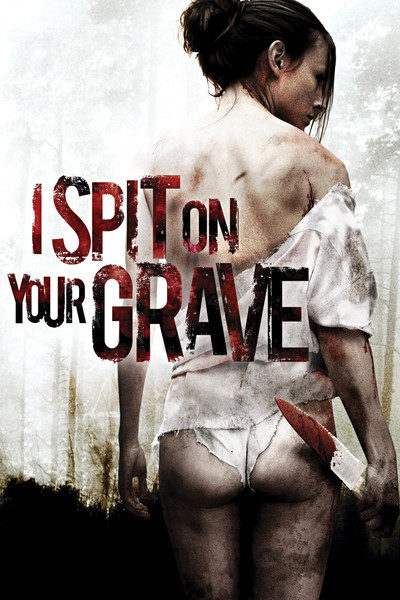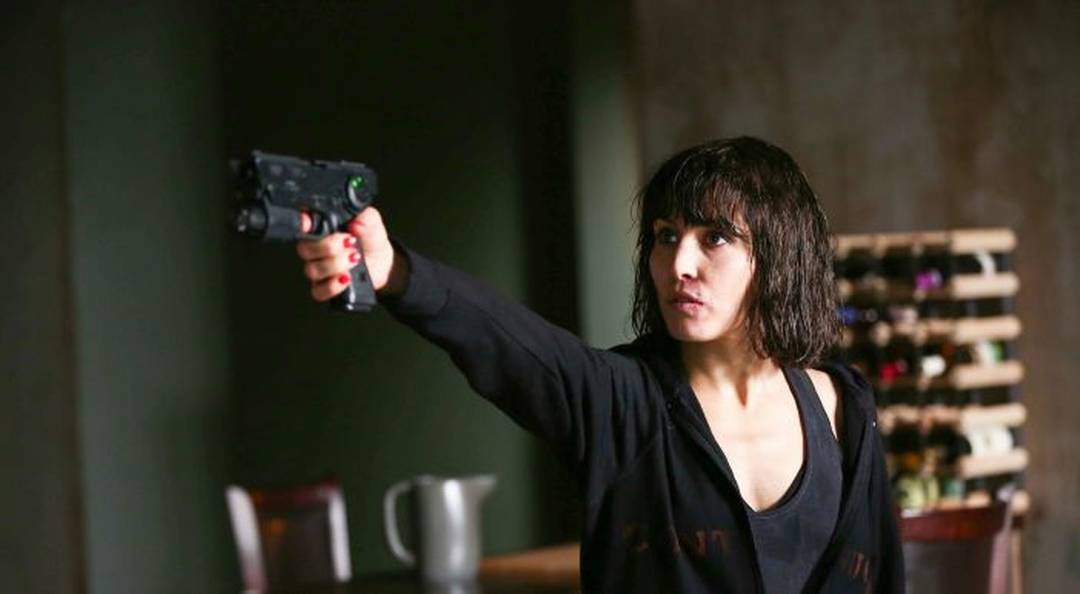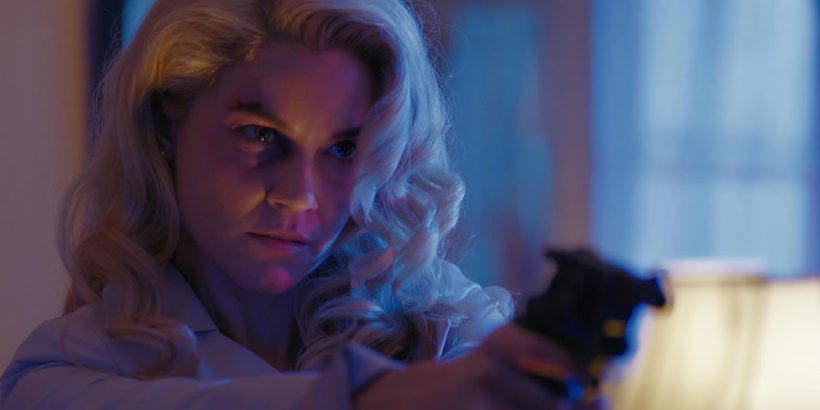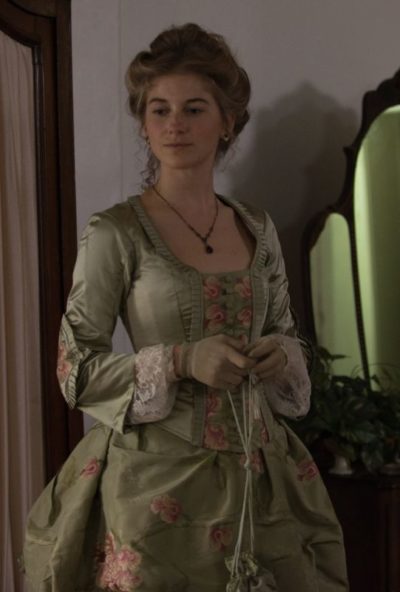★★★
“A giant conundrum.”
 After breaking up with her boyfriend, Gloria (Hathaway) holes up in her middle-American hometown. She gets a job in a bar, run by her childhood pal, Oscar (Sudeikis) – not that this employment does much for Gloria’s burgeoning alcoholism. Meanwhile, over in Korea, the city of Seoul is being plagued by a giant monster, which will appear out of nowhere, behave oddly, and then vanish again. Gloria eventually figures out that when she goes through a particular spot – a local children’s playground – at a specific time, the creature appears in Korea, and its actions reflect hers. Turns out Oscar can do the same, manifesting in Seoul as a giant robot, and he may not be as benign with his new-found powers, as Gloria is attempting to be.
After breaking up with her boyfriend, Gloria (Hathaway) holes up in her middle-American hometown. She gets a job in a bar, run by her childhood pal, Oscar (Sudeikis) – not that this employment does much for Gloria’s burgeoning alcoholism. Meanwhile, over in Korea, the city of Seoul is being plagued by a giant monster, which will appear out of nowhere, behave oddly, and then vanish again. Gloria eventually figures out that when she goes through a particular spot – a local children’s playground – at a specific time, the creature appears in Korea, and its actions reflect hers. Turns out Oscar can do the same, manifesting in Seoul as a giant robot, and he may not be as benign with his new-found powers, as Gloria is attempting to be.
This is a severe mess in terms of genre, and very difficult to put into any particular bucket. It’s part comedy, part drama, part fantasy – yet not sufficiently any of them to the point where I can confidently say it would appeal to fans of that kind of film. It is the kind of quirky role for which Hathaway is well suited, and Sudeikis does well, in a “low-rent substitute for Ben Affleck” kinda way. I just wish Vigalondo (whose time-travel flick, Los cronocrímenes, is one of the best of its kind) had taken the concept here and really run with the possibilities. I guess budget may have limited him there, but I’d like to have seen Gloria and Oscar do more than standing around, waving their limbs somewhat. The trailer suggested a bit more than that.
I think this might be intended to be a parable for abusive relationships, with Oscar using controlling tactics and threats to ensure that Gloria doesn’t go back to the big city and/or her boyfriend there. Or perhaps Oscar is intended to represent the alcohol which is Gloria’s bête noire? You can more or less make up whatever you want here. And you’ll probably have to, because if this film doesn’t credibly explain how two people can project into South Korean monsters (it’s something to do with a childhood trauma, a smashed show-and-tell project and lightning), you know you’re not going to be given much in the way of character motivation.
Re-reading the above, it comes over as negative to a greater extent than it should. Gloria is a likeably flawed lead, I was kept interested, generally amused and occasionally impressed. Yet, it feels like a seriously wasted opportunity, something which could have ended up occupying a deliciously excessive and demented spot between Pacific Rim and Monsters vs. Aliens. Instead, it’s far lower-key and takes place on a surprisingly small scale, than anything involving a monster, hundreds of foot high, terrorizing an Asian city should. If your expectations are similarly restrained, this is likely to work better. I can state with a fair degree of certainty, you won’t have seen anything like it before. And once you’ve seen it, you will probably understand why.
Dir: Nacho Vigalondo
Star: Anne Hathaway, Jason Sudeikis, Dan Stevens, Austin Stowell





 That would have been a more appealing title. Although the incredibly generic one here reflects the incredibly generic plot, which sinks this, despite the efforts of a well above-average cast. CIA agent Alice Racine (Rapace) has, at her own request, been assigned to the backwater of an East London community, after blaming herself for failing to stop a bombing in Paris. She’s called out of her semi-retirement to interrogate a terrorist courier, believed to be carrying a message about an imminent biological attack on a US target in London. She cracks the subject and hands over most of the intel, only to discover the recipients are not the agency employees they claimed to be, and will kill her as soon as they get what they need. She goes on the run, unsure of who she can still trust: her mentor (Douglas), the MI-5 boss (Collette), or a burglar she encounters who happens to be a former British commando (Bloom). Can she stop the attack before it’s carried out?
That would have been a more appealing title. Although the incredibly generic one here reflects the incredibly generic plot, which sinks this, despite the efforts of a well above-average cast. CIA agent Alice Racine (Rapace) has, at her own request, been assigned to the backwater of an East London community, after blaming herself for failing to stop a bombing in Paris. She’s called out of her semi-retirement to interrogate a terrorist courier, believed to be carrying a message about an imminent biological attack on a US target in London. She cracks the subject and hands over most of the intel, only to discover the recipients are not the agency employees they claimed to be, and will kill her as soon as they get what they need. She goes on the run, unsure of who she can still trust: her mentor (Douglas), the MI-5 boss (Collette), or a burglar she encounters who happens to be a former British commando (Bloom). Can she stop the attack before it’s carried out? A mission in central America against drug cartel boss Reynaldo Benitez (Garza) goes wrong, leaving eight Special Ops soldiers dead. This includes the husband of Naval Covert Operations Command agent, Abbey Vaughn (Gregory), who is intent on discovering the truth about what happened to her spouse. She links up with the only survivor of the operation, Lt. Sam Harrigan (Scarbrough), now living in a trailer, and spending his time drinking and practicing golf. Together with the rest of their team, they investigate the case, only to find the tentacles of organized crime are deeper embedded than they appear, and their inquiries put not only themselves, but Abbey’s family in serious danger.
A mission in central America against drug cartel boss Reynaldo Benitez (Garza) goes wrong, leaving eight Special Ops soldiers dead. This includes the husband of Naval Covert Operations Command agent, Abbey Vaughn (Gregory), who is intent on discovering the truth about what happened to her spouse. She links up with the only survivor of the operation, Lt. Sam Harrigan (Scarbrough), now living in a trailer, and spending his time drinking and practicing golf. Together with the rest of their team, they investigate the case, only to find the tentacles of organized crime are deeper embedded than they appear, and their inquiries put not only themselves, but Abbey’s family in serious danger.
 I say the above, since the father of the star here is Clint Eastwood, possibly the most famous vigilante in cinematic history. He gave us Dirty Harry, who memorably spat out lines such as, “When an adult male is chasing a female with intent to commit rape, I shoot the bastard – that’s my policy.” This apple doesn’t fall far from the tree. Though Noelle, the art student who becomes an avenging force after being raped at a party by a fellow student, takes a little longer to get to that point of unrepentant street justice. Her first victim is purely accidental, her attacker falling over a balcony after she confronts him, in the hope of getting some kind of apology. Doesn’t happen, and his death doesn’t exactly cause her sorrow. When she realizes she is also far from alone in what she has gone through, she decides that active retaliation is the best approach.
I say the above, since the father of the star here is Clint Eastwood, possibly the most famous vigilante in cinematic history. He gave us Dirty Harry, who memorably spat out lines such as, “When an adult male is chasing a female with intent to commit rape, I shoot the bastard – that’s my policy.” This apple doesn’t fall far from the tree. Though Noelle, the art student who becomes an avenging force after being raped at a party by a fellow student, takes a little longer to get to that point of unrepentant street justice. Her first victim is purely accidental, her attacker falling over a balcony after she confronts him, in the hope of getting some kind of apology. Doesn’t happen, and his death doesn’t exactly cause her sorrow. When she realizes she is also far from alone in what she has gone through, she decides that active retaliation is the best approach. This sequel is almost entirely unrelated to the original, beginning with a new, fresh character who will be tortured within an inch of her life, before escaping and roaring back for revenge. However, it manages to be a little more coherent, even as it replaces the redneckophobia of the original, with much more straightforward xenophobia.
This sequel is almost entirely unrelated to the original, beginning with a new, fresh character who will be tortured within an inch of her life, before escaping and roaring back for revenge. However, it manages to be a little more coherent, even as it replaces the redneckophobia of the original, with much more straightforward xenophobia. Having been pleasantly surprised by
Having been pleasantly surprised by  If you ever wanted to see Denise Richards brawl with MMA star Chuck Liddell, or even the daughter of Frasier, this film delivers. For Richards plays FBI hostage negotiator, Gretchen Blair, who is being ignominiously sent back to Washington after willfully disobeying orders during a siege. She ends up sitting next to the increasingly-nervous Terry (Barker), who offers her $50 million if she helps him get off the plane alive. For he knows it’s about to be hijacked by Matthew Sharpe (Lundgren) and his cronies, who will stop at nothing to retrieve the item which Terry took from them. It’s up to Gretchen, with the dubious help of an air marshal on his third solo flight, to stop their plan.
If you ever wanted to see Denise Richards brawl with MMA star Chuck Liddell, or even the daughter of Frasier, this film delivers. For Richards plays FBI hostage negotiator, Gretchen Blair, who is being ignominiously sent back to Washington after willfully disobeying orders during a siege. She ends up sitting next to the increasingly-nervous Terry (Barker), who offers her $50 million if she helps him get off the plane alive. For he knows it’s about to be hijacked by Matthew Sharpe (Lundgren) and his cronies, who will stop at nothing to retrieve the item which Terry took from them. It’s up to Gretchen, with the dubious help of an air marshal on his third solo flight, to stop their plan.
 The film never tries to hide the fact that Jessica is nutty as a fruitcake. As a result, its plotting is instead very much concerned just with getting the story from Point A to B, offering few surprises. I’m not exactly convinced by the “Based on a true story” claim here. And let’s not even start with the police procedures depictede: let’s just say, Stillwater PD could use some re-training, and move on. Yet the pleasures outweighed the deficiencies; in particular, as mentioned, watching the mousy Faith and psychotic glam-girl Jessica face off. The latter gets most of the cinematic highlights, vamping it up to great effect. Witness, for example, her hyper-ventilating in order to place a convincingly panicked phone call to her lover. Guess all Jessica’s acting classes finally paid off!
The film never tries to hide the fact that Jessica is nutty as a fruitcake. As a result, its plotting is instead very much concerned just with getting the story from Point A to B, offering few surprises. I’m not exactly convinced by the “Based on a true story” claim here. And let’s not even start with the police procedures depictede: let’s just say, Stillwater PD could use some re-training, and move on. Yet the pleasures outweighed the deficiencies; in particular, as mentioned, watching the mousy Faith and psychotic glam-girl Jessica face off. The latter gets most of the cinematic highlights, vamping it up to great effect. Witness, for example, her hyper-ventilating in order to place a convincingly panicked phone call to her lover. Guess all Jessica’s acting classes finally paid off! Game of Thrones, this clearly isn’t. But both Chris and I were struck by the similarities between what befalls the main character here, and the re-programming which Anya Stark underwent at the hands of the Faceless Men. Because the first, and arguably key, step in both is to destroy the existing personality, so there is a blank slate – the phrase “tabula rasa” is explicitly used here – on which the new character can be drawn. In this case, the victim is Isabel Porter (Gallerani), a young woman who has sunk into depression after the death of her parents. She opts for a stay at the Rosewood Institute, a highly regard mental sanatorium in Baltimore.
Game of Thrones, this clearly isn’t. But both Chris and I were struck by the similarities between what befalls the main character here, and the re-programming which Anya Stark underwent at the hands of the Faceless Men. Because the first, and arguably key, step in both is to destroy the existing personality, so there is a blank slate – the phrase “tabula rasa” is explicitly used here – on which the new character can be drawn. In this case, the victim is Isabel Porter (Gallerani), a young woman who has sunk into depression after the death of her parents. She opts for a stay at the Rosewood Institute, a highly regard mental sanatorium in Baltimore.